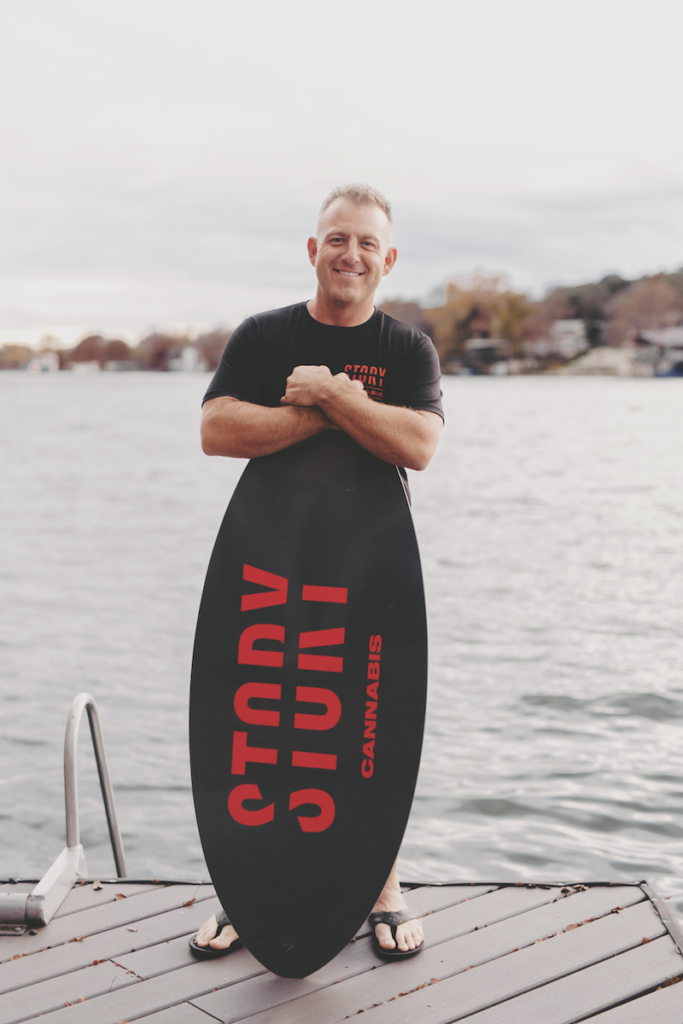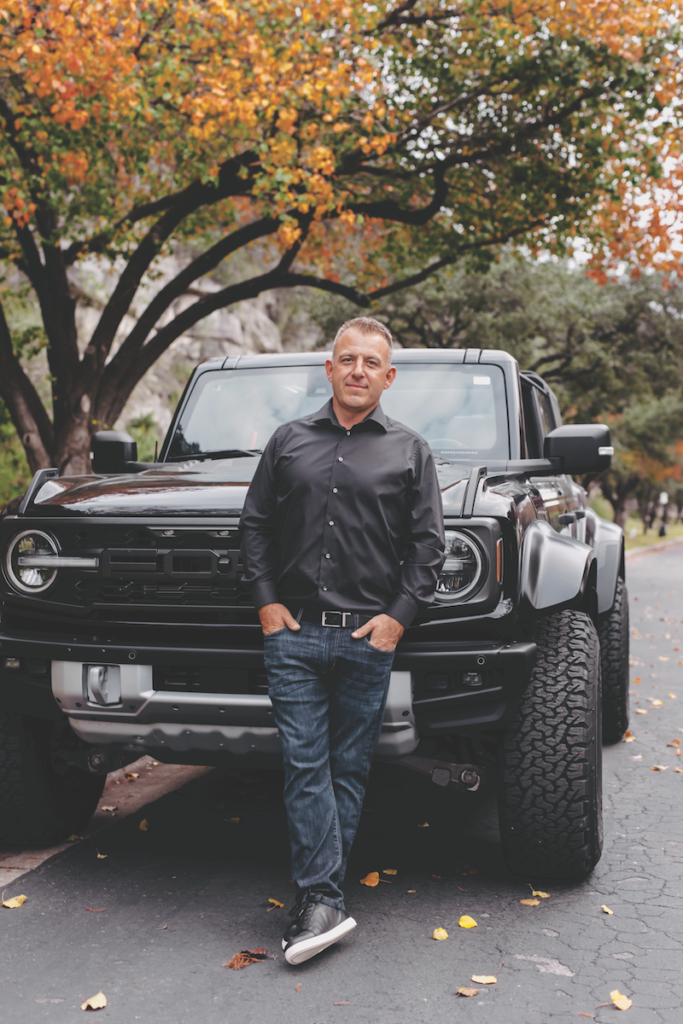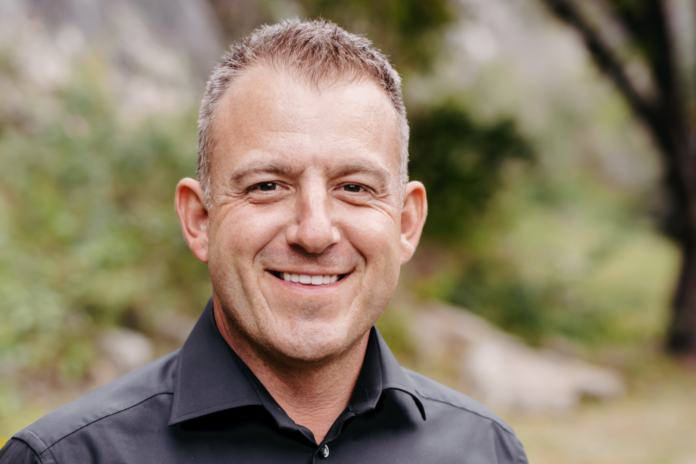Numerous skills are necessary to succeed as an entrepreneur, and having experience and acumen in real estate and finance are certainly high on that list. Perhaps those are two of the reasons Jason Vedadi has become a veritable weed ninja over the past decade, building, buying, and selling companies with very few missteps along the way.
Vedadi’s cannabis career had humble origins in 2008. His home state of Washington was one of the first to allow medical patients to grow a limited number of plants, and he started a small cultivation operation as a hobby while running a construction and real estate development business.
Vedadi’s first significant play in the cannabis industry was founding Modern Flower in Arizona in 2015. In 2017, he negotiated a merger with Harvest Health & Recreation and became the resulting entity’s executive chairman. (Trulieve acquired Harvest in 2021 in a $2.1-billion all-stock deal.) After he departed Harvest in 2020, he founded Blue Camo LLC, better known as Oasis Cannabis, a vertically integrated operation that owns multiple dispensaries and cultivation operations in Arizona. In 2021, he sold that company to Ayr Wellness in a stock-and-cash deal valued at $75 million.
Not long afterward, Vedadi made his next move, partnering with Joe Sai, a former chief operating officer at Trulieve and Harvest. In mid-2022, they launched Story Cannabis in Maryland. Eighteen months later, the vertically integrated company where Vedadi serves as chief executive officer operates in Arizona, Ohio, and Maryland, with New Jersey and other states on deck. The company also reacquired Oasis from Ayr.
Few in the industry have had as much experience building, managing, selling, and acquiring companies. For the most part, Vedadi has focused on winning licenses in states that have recently legalized medical use, but those opportunities are diminishing. Others are emerging, though, and he and his team are considering ways to take advantage of them.
While Story represents a new era for Vedadi, it’s also more of the same for an entrepreneur who has made a steady string of astute, ambitious business decisions. As he contemplates 2024, he also is contemplating the prospects for federal legislation and relief for an industry that has operated under a financial sword of Damocles for years. He’s also scoping out new markets and looking for ripe new ground to expand his operations.
Operations and growth

How do you go about evaluating new markets? What is your growth strategy going forward?
Generally speaking, we’ve done our best when we actually win the licenses and don’t have to pay for them. So we’ve tried to focus on those markets that are pre-medical, but obviously we’re late in the cycle for that, and now we’ve been focusing on states that have a decent population base and haven’t turned [adult-use]. I live in Texas now, so we’re hopeful we’ll enter that market someday. And then we’re working on North Carolina, which looks like it has some promise. So we would rather take a position in a market that’s completely undeveloped. We have the patience, and we know exactly how these markets are going to roll out. We’ve dealt with a half a dozen different markets, and we’ve become sophisticated on the rollout and how to spend our time and energy on building those businesses as the market develops. So that would be number one.
Number two would be to go find transactions that make sense in medical markets, and last would be mature rec[reational] markets. It isn’t as exciting of a growth strategy, because those markets are kind of established and in some ways the opportunities have passed. In Arizona, we would go deeper there, because it’s home turf and we know it. I also think the Arizona market could potentially be the best long-term market in the whole country because of the way its rules are constructed.
What challenges do you see with new markets, and what are your criteria for expanding Story’s presence?
One thing is for sure: It’s very hard to operate efficiently in a lot of places. With some of these MSOs [multistate operators], you can see that quarter over quarter. They’re learning to become more efficient, but it took about half a decade for them to start optimizing. And that’s because it’s very difficult to run these verticals, and there just wasn’t enough of a skill set in the labor force that had enough experience to run these businesses.
One thing we evaluate is what kind of stress expansion will put on our existing operating team. Does it move the needle enough internally to justify taking on that opportunity and trying to monetize it? [Our evaluation] starts with “What can we handle?” Then we kind of move on from there. But we’d like to get into states where you can do at least $20 million in [earnings before interest, taxes, depreciation, and amortization]. Otherwise, it might make more sense to just penetrate more in existing markets.
What is unique about the way Story Cannabis approaches retail, either in the design of the shops or the customer experience?
Our store design is similar most of the time, but the space can be kind of difficult sometimes because of zoning. You take what you can get and optimize it. The store “feel” should have a very similar vibe, and so we strive for that. There’s a certain corporate culture that’s acceptable and what people like to feel like when they walk into a dispensary. It’s hard to explain, but it’s like a record store in the late 1980s, early ’90s: It’s a cool place where the kids want to work. You have a good feeling when you go in; it’s kind of hip for that period of time and generation. I feel like that’s a cannabis store today.
For our customers, we’re trying to optimize efficiency to get them in and out of the store as fast as they want. That’s becoming more of an emphasis as time goes on, because people want to get in and get out—so online ordering, ready-to-go ordering. We’re hopeful for better payment system options, mostly using some kind of PIN debit, cashless [options], ATMs in the stores, or credit cards over the phone for your orders.
Competition and industry threats
Story Cannabis is a small or mid-sized MSO. What do you think are some of the challenges in competing against bigger MSOs that presumably have deeper pockets and a bigger market presence?
I don’t really think of it that way. In fact, I have tried to tune that out, because I think people get too hyper-competitive in cannabis. We’re in an industry that has an amazing amount of growth, and I think the bigger challenge within the industry is having to compete with the illicit market. That is a larger concern to me—and the whole idea that we have an unregulated hemp industry that’s selling THC to unregulated [retailers] while we’re somewhat over-regulated, I would argue. So those are my larger concerns.
The larger MSOs have their own kind of business model, and I think we have a little more boutiquey style. Their access to capital in general is better—but not right now, because their stock prices aren’t cooperating and the valuations are irrational. But I view everybody as on the same team on this one, and I think there’s plenty to go around. The MSOs are four times larger than where we are now, and we don’t aspire to get to those levels. Even for the guy who has just one store in Arizona, I think there’s so much upside and so much room to grow from whatever the existing legal market is—in the low $20 billions—to double or triple that amount at some point.
How big a threat to the cannabis industry is hemp? Being in Texas, have you ever thought about starting a hemp business?
I recently had conversations with some [United States] senators who supported the [2018] Farm Bill who have been tweeting about their fear of access to more drugs for kids and lobbying against the legal cannabis market. But we’re sitting in front of them showing them 1,000 milligrams of delta-9 gummies and THCA [tetrahydrocannabinolic acid] that’s sold within a block of their office that their grandkids could go buy in a vending machine. Meanwhile, our products are tested, and we operate in the most regulated commercial industry in the U.S.
They basically opened the door for kids to get stoned anywhere in this country, and now they’re scratching their heads because nobody realized the loophole that was opened by the Farm Bill. This was not their intention. So I believe the hemp industry is going to get rolled back pretty hard over the next two or three years, and the new farm bill is going to be much harder on unregulated hemp.
So no, I don’t support [unregulated hemp], because I’ve been working in the regulated THC business for a long time, and I think all drugs should have some regulation to them. Nobody knows where this [hemp-based] stuff is coming from and who is getting their hands on it. You’re going to start seeing more problems with it all the time. Nobody else in this whole country gets to give someone things that are consumed without some supervision or regulation except the hemp industry.

Investment
Over the past couple years, most companies have had a hard time raising money, both in public markets and from private sources. Has that been true for Story as well?
It doesn’t matter who you are, [raising money] has gotten abundantly harder. We have been able to access capital, and I think we’ve done better than most. But I feel like it’s five or six times harder. As a company, we have gotten over the hump to a place where we’re cash-flow positive, and we’re sitting in a pretty good spot. We kind of got through the gauntlet right before things got even more difficult.
It’s interesting, because it feels like things are going to either get a lot better or, if nothing happens, for a lot of operators it’s going to get a lot worse. And so there are a lot of people on pins and needles when it comes to whether we are finally going to see any federal advancement in the industry or not.
It feels like the industry has lost ten blackjack hands in a row and is on its way to twenty—which seems impossible, but it’s happened. And suddenly everybody’s reluctant to believe anything could possibly go right, even though we’re running through the administrative process that has to happen one way or the other. But people are reluctant to buy into that. So it’s an interesting place we’re all sitting in at this time.
In terms of your conversations with investors, what are they most focused on when they talk to you about putting money into a business?
Right now, investors are a little more hyper-focused on how they get their money back. Everybody came into cannabis with unrealistic expectations about what these businesses were going to become and how fast they were going to get there. I think they’re going to get there, but not as fast as people expected.
Investors are asking a plethora of questions; which ones depends on where someone’s head is. Real estate people often ask if there is a coupon attached. Then there’s general private equity that’s got, like, three- to five-year time horizons and wants to know the multiple on the exit and how we get there. [The industry doesn’t] have your typical investment opportunities because of the illegality of the business, so we’re dealing more with high-net-worth individuals and family offices rather than structured funds.
How would you say the industry’s dynamics have changed over the past five years or so, and how has that affected investors?
New investors have no clue what’s going on, and existing investors are really looking at how profitable the business is and how the broader market has changed. We’re seeing a tightening of investment in all sectors.
Before there was a real market, companies were valued predicated on their footprint, but that’s no longer something people are looking at. Because they know we have an inefficient tax structure under [Internal Revenue Code Section] 280E, the existing investor base is more about, “Are you creating a free cash flow, and how good an operator are you? What’s your balance sheet look like?” Can you make free cash flow?” This has gone from an exposure-to-markets type of investment to how well you can operate the business, how profitable your business can be, and how fast.

Federal legislation
If rescheduling happens in the next year or two, what do you think is going to be the biggest impact?
For sure 280E. If a guy does $10 of EBITDA, [getting rid of 280E would seem] almost like he saves $3 of that. There are a bunch of companies that are cash-flow break-even in states where the margins are tougher, including Colorado, Michigan, and California. So if you are at 20–25 percent EBITDA, all of a sudden it works. These MSOs could save maybe $100 million a year. And that’s going to change our balance sheet overnight.
From there, it’s a domino effect, right? The balance sheets are going to change, and then credit is going to become way more available and it will be much easier for people to lend to the industry, because there would be so much more money being made by the industry. So, free cash back to the investors and everybody else. I think the dynamic of that, for the existing industry, is more important than anything else.
I believe at that point the illicit market will be the one that’s the least beneficial, because all of a sudden these margins tighten up and consumers are now spending a little less in the store, as well. So the consumer also benefits, because there’s so much less inefficiency in how people’s costs and [cost of goods sold] are.
Banking is this shiny object out in the public eye, but I don’t think it has as big a net impact on the industry unless it comes with some bells and whistles. Most of us have banking. We don’t have it in the perfect traditional sense, but I have a deposit relationship in every state, armored cars pick up my cash, and we have normal checking accounts. The customer experience sucks without traditional banking. Dispensaries can’t get Visa or Mastercard in their respective businesses, so they’re having to deal in cash and there’s more cash handling on-site.
Uplisting would be the next biggest domino to fall, in my opinion. [Uplisting occurs when a company elevates its stock from an over-the-counter market to a major exchange like the Nasdaq or the New York Stock Exchange. Major U.S. exchanges don’t allow plant-touching companies to list because cannabis is federally illegal.]
What’s on your wish list for 2024?
The industry has no institutional [capital] backing. If a “Garland memo” came out to address some of these financial institution issues and credit card issues, it would give people a little more clear runway. For now, companies are all really mom-and-pops, even the larger MSOs, because there’s no institutional backing.
More important than anything else is for laws to clear the way for the larger institutions to back cannabis businesses. Until then, it will be a mom-and-pop environment, a state-by-state environment. I don’t see the feds giving us full-blown legalization for a long time, but institutional capital would be really nice.











[…] our industry, and I applaud the Biden-Harris administration for leading the historic push,” said Jason Vedadi, chief executive officer at Story Cannabis Company, one of the largest privately owned multistate […]